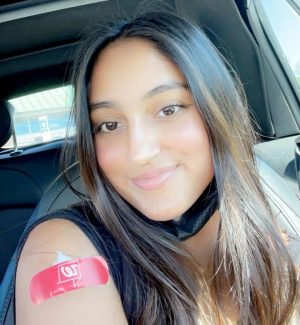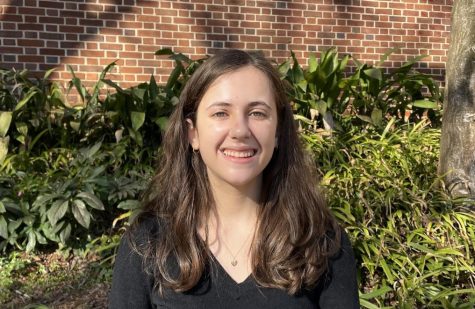Colleges should require Covid-19 vaccinations
This fall, when current seniors enter their college campuses as a student for the first time, their required packing list might have something different on it: a Covid-19 vaccination.
May 18, 2021
This fall, when graduated seniors enter their college campuses as freshmen, their required packing list might have something different on it: a Covid-19 vaccination.
More than 100 colleges in the United States, including Atlanta-area colleges Emory University, Morehouse College and Spelman College, plan to require students to be fully vaccinated for the fall 2021 semester. Though some view this precautionary measure as a dangerous threat to personal liberties, colleges can and should require these vaccinations in order to protect their students and the community at large.
Colleges already do mandate vaccines to protect the health of their students and the community. For example, The University of Georgia requires that students receive the MMR, Varicella, Tetanus/Diphtheria and Hepatitis B vaccine, and suggests a host of other vaccines.
Much of this hesitancy to require vaccines comes from the lack of full FDA authorization. One of the reasons the current Covid-19 vaccines (Pfizer, Moderna and Johnson & Johnson) were able to be publicly available so quickly is because they have only been approved by the U.S. Food and Drug Administration (FDA) for emergency use, and don’t have full FDA authorization yet. The full authorization takes a while to get, and the emergency use authorization is only available for the course of a public health emergency, like the Covid-19 pandemic. The emergency use authorization will go away once the public health emergency is declared over.
Because the vaccines aren’t all the way FDA approved, some colleges are hesitant to require them, and some people are hesitant to get them. For example, the University System of California will only require vaccines once they have been fully approved by the FDA.
But even then, public universities like the University of Maryland system are still mandating these vaccines in the fall. This requirement is backed up by precedent set by colleges whichrequire vaccines for other serious infectious diseases. But all of these vaccines have full FDA approval, unlike the Covid-19 vaccine. However, the emergency use authorization and seriousness of the pandemic does seriously merit an exception.
Covid-19 creates a health threat that’s dangerous to people living in poorly ventilated, small spaces, such as dorm rooms. The Pfitzer and Moderna vaccines were found to protect more than 90 percent of inoculated people from all Covid-19 infections. If universities can ensure their students and staff are safe, why wouldn’t they?
However, not everyone can get a Covid-19 vaccine yet, including children and those with allergic reactions to the vaccine or injectable medication. International students may also have trouble getting the vaccine due to low supply in other countries. When considering requiring a Covid-19 vaccine, colleges should implement the same medical exemptions they have in place for other vaccines, and possibly set up a way to provide vaccines to students who may not be able to get them elsewhere.
Because there will be vulnerable and immunocompromised people on college campuses this fall, it makes even more sense for those who can get the vaccine to be required to get it. According to an article published by the Johns Hopkins School of Public Health, when the majority of a population is immune from infection, indirect protection is provided to the still vulnerable members, creating herd immunity. The higher the level of immunity, the larger the benefit.
If everyone who could be vaccinated got the shot at or before college, it would create an environment of normalcy and protection for those who can’t. This layer of protection wouldn’t just be confined to the campuses, either; areas surrounding colleges would be much safer due to the high percentage of vaccinated individuals.
Colleges requiring Covid-19 vaccines would help the U.S. return to normalcy. Herd immunity would build much faster, and everyone on campus and beyond would be safer. Universities have always been a driving force in our society, a place for new theories and ideas to be spread amongst a smaller, more energetic population. If colleges are able to return to normal due to vaccinations, it’ll be publicized, tangible and far-spread proof that normal is possible.










